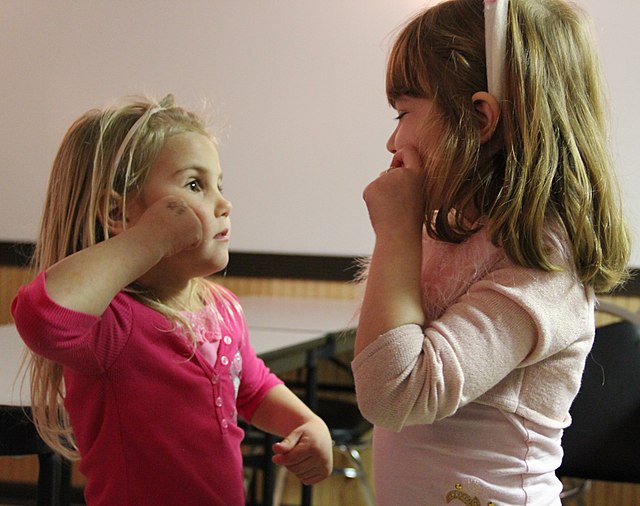Philology is the study of language in oral and written historical sources. It is the intersection of textual criticism, literary criticism, history, and linguistics with strong ties to etymology. Philology is also defined as the study of literary texts and oral and written records, the establishment of their authenticity and their original form, and the determination of their meaning. A person who pursues this kind of study is known as a philologist. In older usage, especially British, philology is more general, covering comparative and historical linguistics.
Cover of Indo-European Philology: Historical and Comparative by William Burley Lockwood (1969)
Language is a structured system of communication that consists of grammar and vocabulary. It is the primary means by which humans convey meaning, both in spoken and written forms, and may also be conveyed through sign languages. Human language is characterized by its cultural and historical diversity, with significant variations observed between cultures and across time. Human languages possess the properties of productivity and displacement, which enable the creation of an infinite number of sentences, and the ability to refer to objects, events, and ideas that are not immediately present in the discourse. The use of human language relies on social convention and is acquired through learning.
A mural in Teotihuacan, Mexico (c. 2nd century) depicting a person emitting a speech scroll from his mouth, symbolizing speech
Cuneiform is the first known form of written language, but spoken language predates writing by at least many tens of thousands of years.
Children of deaf adults using American Sign Language
Braille, a tactile writing system





